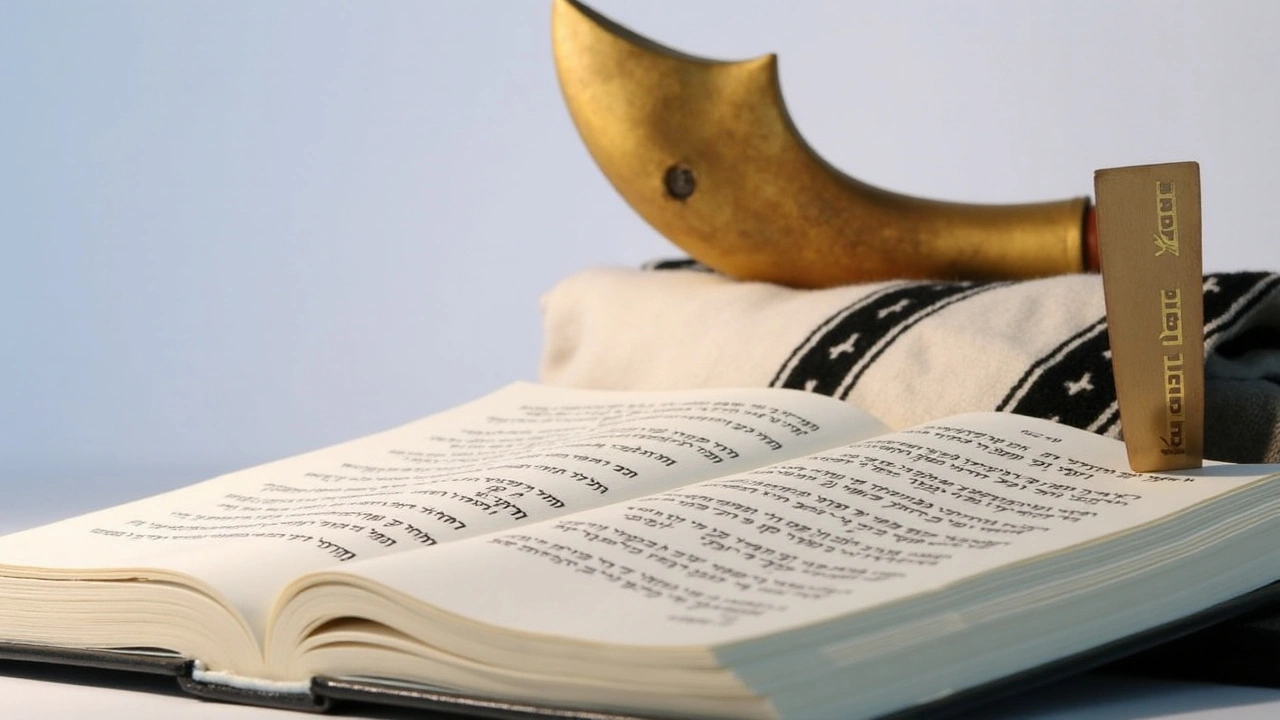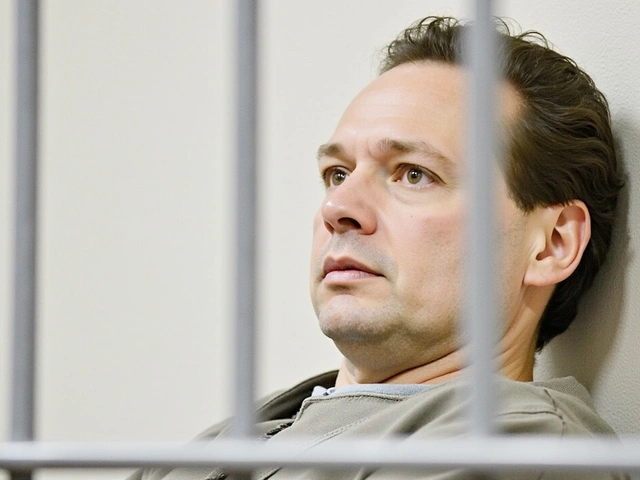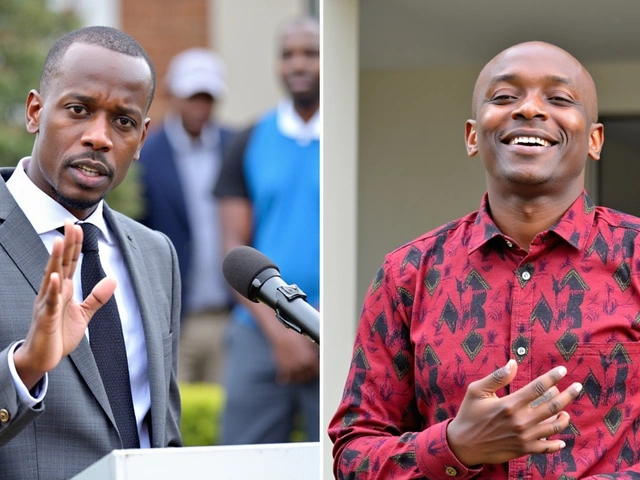
Yom Kippur: A Sacred Day of Reflection and Atonement
Yom Kippur, widely recognized as the Day of Atonement, holds a place of utmost reverence in the Jewish faith. This sacred day, observed with sincerity and spiritual depth, marks the culmination of the Jewish High Holidays, wherein followers seek redemption and forgiveness. The gravitas of this day cannot be overstated, as it provides an opportunity for Jews worldwide to pause, reflect, and reconnect with their faith. Occurring in 2024 from the evening of Friday, October 11, to the evening of Saturday, October 12, Yom Kippur calls forth not only a day of fasting but an immersive spiritual journey.
The Significance of Yom Kippur
Yom Kippur is more than a day of tradition; it represents a deeply spiritual experience that transcends time. Historically, this day is perceived as the occasion when individuals atone for their sins and seek forgiveness from both God and those whom they may have wronged. This concept of atonement is rooted in the belief that God determines one's destiny for the coming year, catalyzing a period of intense reflection and prayer. Individuals examine their past actions, embrace repentance, and seek spiritual renewal.
Yom Kippur falls on the 10th day of Tishrei in the Hebrew calendar and follows the celebratory observance of Rosh Hashanah, the Jewish New Year. The preceding days encourage introspection and accountability, symbolizing a profound personal transformation journey. The seriousness of the occasion is underscored by its association with seeking divine mercy, aiming for peace and fulfillment in the year that lies ahead.
Customs and Observance
Fasting, an essential component of Yom Kippur, serves as a tangible act of devotion and self-discipline. From sundown to sundown, believers abstain from eating or drinking. This fast is meant to cleanse one's soul and foster focus on spiritual matters rather than worldly concerns. While fasting is observed by most, there are exceptions for young children and those facing medical risks, ensuring compassion and care are prioritized.
The observance of Yom Kippur is marked by extensive prayer. Attendees fill synagogues engaging in heartfelt liturgy that resonates with themes of apology and repentance. Among the most moving elements is the recitation of the "Kol Nidre" prayer, an ancient prayer reflecting on the vows made during the past year. The emotional reverberations of this prayer set the tone for the day, embracing a solemn acknowledgment of human fallibility and the quest for divine grace.
As the Day of Atonement concludes, the blowing of the shofar—a ram's horn—heralds the end of the fast. This climatic moment rings across congregations, symbolizing relief and renewal. Traditionally, a festive meal follows the fast, designed to replenish strength and celebrate spiritual rebirth. The "Seudat Mafseket" comprises a rich tapestry of dishes, often featuring a layered brunch-style menu with bagels, eggs, and other culturally significant foods, nourishing both body and soul.
Yom Kippur and Modern Reflection
Despite its ancient roots, Yom Kippur remains profoundly relevant in today's modern world. The core principles of atonement and self-examination resonate deeply, providing much-needed balance against life's rapid pace and myriad pressures. In preparation for this day, many Jewish communities encourage preparation strategies, highlighting the need to be attuned to one's physical and spiritual needs. Dehydration is a significant concern during the fast, so individuals often increase fluid intake in the hours and days leading up to Yom Kippur. More than preparing the body, though, mental and emotional preparation is encouraged as each person embarks on their individual journey of reflection.
A noteworthy aspect of Yom Kippur is the custom of sharing wishes for the occasion. "Gemar chatimah tovah," a phrase exchanged among celebrants, translates to "A good final sealing." This phrase encapsulates the hope that forgiveness and a positive decree are secured at the close of Yom Kippur. Interestingly, contrary to other festive occasions, it is not customary to wish someone a "Happy Yom Kippur" due to the day's somber nature.
Embracing the Spirit of Yom Kippur
The enduring relevance of Yom Kippur emanates from its timeless message of cleansing and renewal. This ancient day served as a cornerstone for Jewish tradition, imbuing generations with the importance of introspection, reconciliation, and hope. Amid prayers and fasting, the invitation to renew one's spirit forms the heart of Yom Kippur, underscoring the desire to live with righteousness and integrity.
In 2024, as believers gather to observe Yom Kippur, the echoes of ancient tradition will weave into contemporary life, creating a tapestry of faith and reflection. This sacred time invites all within the faith, and perhaps even those outside it, to consider the importance of accountability, forgiveness, and the unending journey towards moral and spiritual betterment.
October 14, 2024 AT 06:50
I grew up in a secular Jewish household but always respected Yom Kippur. Last year I spent the day reading old letters from my grandparents and writing my own apologies to people I'd hurt. Didn't fast but still felt the weight of it. Powerful stuff.
October 15, 2024 AT 12:35
The Kol Nidre prayer... it's not just music. It's the sound of a community holding its breath. I've heard it in synagogues from Brooklyn to Berlin and every time it cracks something open in me. Not religious but deeply human. That's what makes it endure.
October 15, 2024 AT 23:49
I love how Yom Kippur doesn't care if you're rich or poor. Everyone's equal when you're sitting in silence praying. My grandma always said the best part wasn't the fasting it was the feeling that you could start fresh. No judgment just a clean slate.
October 16, 2024 AT 18:34
The shofar blast at the end is pure neurochemical warfare. Cortisol drops. Dopamine spikes. Endorphins flood in. It's not magic it's evolutionary biology wrapped in ancient ritual. The body knows this is a reset event even if the mind doesn't. That's why it sticks.
October 17, 2024 AT 12:17
You all act like this is some mystical spiritual awakening. It's a 3000-year-old guilt ritual disguised as enlightenment. The whole system is designed to keep people obedient through fear of divine punishment. The fasting? A control mechanism. The shofar? A Pavlovian bell. Wake up.
October 18, 2024 AT 21:30
There is an ontological truth in the silence of Yom Kippur. In the absence of sustenance the self becomes transparent. The ego dissolves. What remains is not the person you were but the person you might become. The day does not forgive-it reveals. And revelation is the only true atonement.
October 19, 2024 AT 22:11
I'm not Jewish but I've always admired how this day centers accountability without shame. It's not about feeling bad-it's about making things right. I try to do something similar every year. Write down three things I need to apologize for and reach out. It changes your whole year.
October 20, 2024 AT 11:57
My mom always made this amazing egg salad with dill and a little bit of sour cream on rye for the break-fast. We'd eat it while listening to the last shofar blast outside. Best meal of the year. Fasting makes everything taste like heaven.
October 20, 2024 AT 21:18
I went to a service in LA last year and there was this guy in the back crying so hard he couldn't stand. No one asked him why. No one judged. We just sat with him in silence. That's the power of this day. You don't need to explain your pain. The space holds it for you.
October 22, 2024 AT 20:32
wait so you dont say happy yom kippur? i always say that and feel so bad now lmao
October 24, 2024 AT 02:21
You're not alone. I used to say it too. Then I learned it's like wishing someone a happy funeral. Doesn't mean you don't care-it just means you're learning the language of respect.
October 25, 2024 AT 03:45
You think this is about atonement? It's about control. The same people who push this ritual are the ones running the banks, the governments, the media. They want you to feel guilty so you won't question their power. Fasting weakens your mind. Silence makes you compliant.
October 25, 2024 AT 11:00
The irony is that the more you fight against ritual the more it reveals your own need for meaning. You call it control. I call it community. You call it manipulation. I call it memory. The shofar doesn't silence dissent-it invites it. Into silence. Into truth.
October 26, 2024 AT 15:16
I'm from Nigeria and we don't have Yom Kippur here but I watched a livestream last year and it moved me. I sent my cousin a message I'd been avoiding for 5 years. We cried on the phone. I didn't fast but I felt clean. 🙏





October 12, 2024 AT 23:52
Fasting for 25 hours? That's wild. I tried it once just to see what it felt like and ended up napping for 12 hours after. But honestly I get why people do it. It's like hitting reset on your soul.